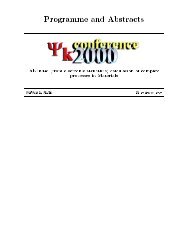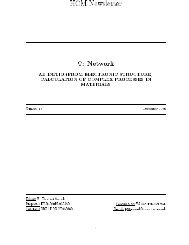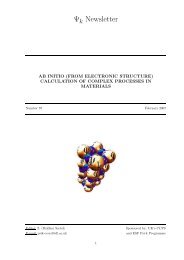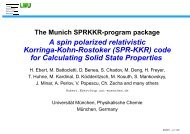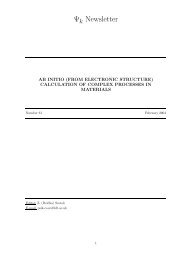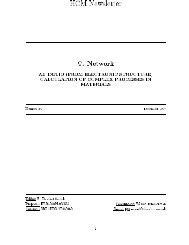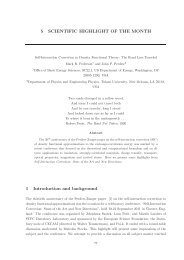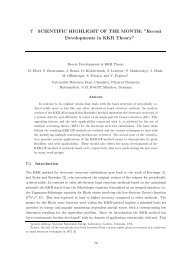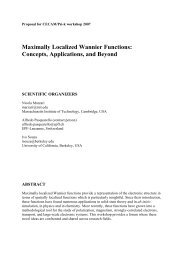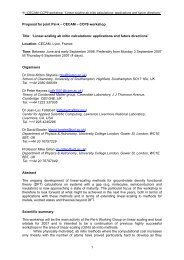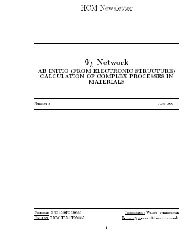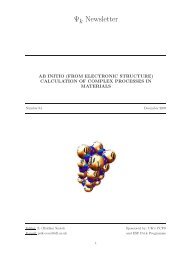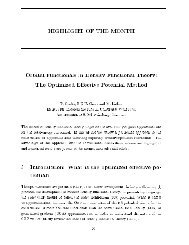Newsletter 107 - October 2011 - (pdf - 0.6 MB) - Psi-k
Newsletter 107 - October 2011 - (pdf - 0.6 MB) - Psi-k
Newsletter 107 - October 2011 - (pdf - 0.6 MB) - Psi-k
You also want an ePaper? Increase the reach of your titles
YUMPU automatically turns print PDFs into web optimized ePapers that Google loves.
2.2 Report on <strong>Psi</strong>-k Workshop on KKR and Related Greens Function<br />
Methods<br />
Halle, Germany<br />
July 8-10, <strong>2011</strong><br />
<strong>Psi</strong>-k Network,<br />
Max Planck Institute of Microstructure Physics and<br />
Martin Luther University Halle-Wittenberg<br />
Arthur Ernst, Wolfram Hergert, Ingrid Mertig<br />
http://slab.physik.uni-halle.de/kkr workshop<br />
Scientific Report<br />
The importance of ab initio electronic structure simulations based on Density Functional Theory<br />
is well-established in materials science, new approaches and theories are being continuously implemented<br />
to study novel problems and materials. The Korringa-Kohn-Rostoker (KKR) method<br />
is known to be a highly versatile tool to investigate, e.g., relativistic effects and electron correlations,<br />
magnetic and chemical interactions, spectroscopic properties, as well as electric transport<br />
in solids ranging from bulk to nanoparticles. This versatility of the KKR method mainly stems<br />
from the Greens function formalism it employs.<br />
Back to several decades, leading groups of the KKR method have organized annual or biannual<br />
meetings with the aim to exchange experiences in developing computer codes and to discuss<br />
scientific achievements and further progress that can be accessed in terms of this methodology.<br />
As those groups are mostly located in Europe, <strong>Psi</strong>-k naturally provided a background to host<br />
and support these meetings during the past decade. It was the very purpose of this workshop<br />
to continue this tradition and, thus, to keep the KKR method in the forefront of ab initio based<br />
computational materials science.<br />
The workshop was intended to continue a regular series of meetings of the KKR research community<br />
organized under support of <strong>Psi</strong>-k (Munich 2004, Bristol 2006, Canterbury 2008, Budapest<br />
2009). A particular feature of the current workshop was that not only the KKR community was<br />
presented but as well groups working with other Green function related methods. 73 participant<br />
from seven European countries joined the workshop.<br />
Related to recent advances achieved and novel challenges met by the KKR method, the workshop<br />
was focused to developments and applications of relativistic electron theory and phenomena<br />
driven by spin-orbit interaction:<br />
• The calculation of magnetic anisotropies and magnetic interactions of relativistic origin<br />
such as the Dzyaloshinskii-Moriya interaction.<br />
9



